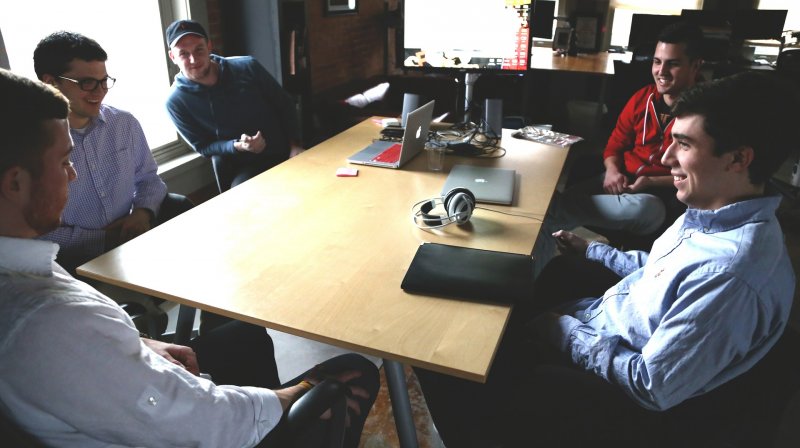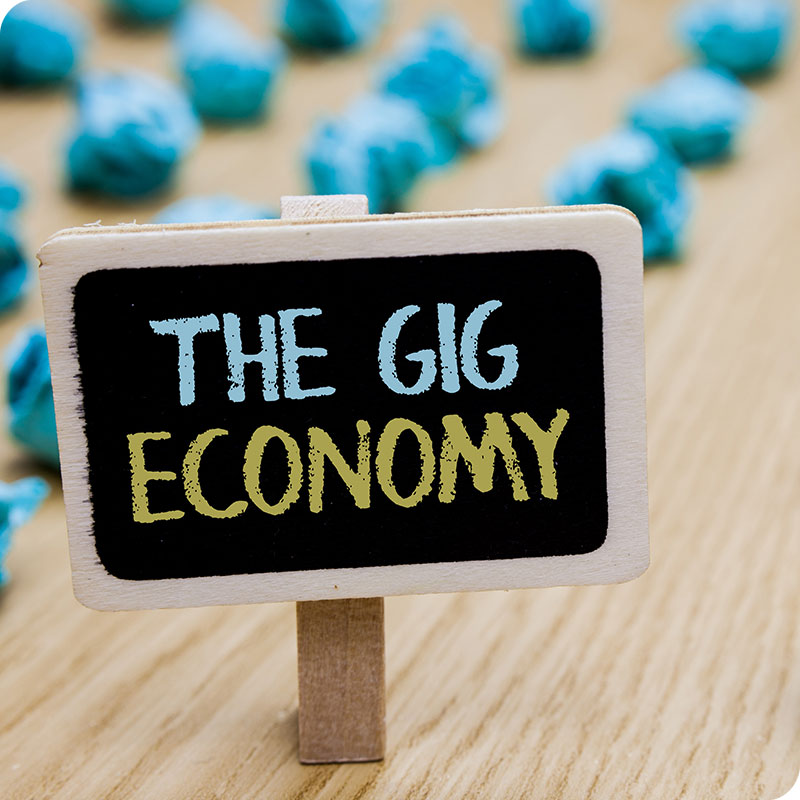‘Gig Economy’: the end of work as we knew it
Employment - one of the most intangible problems economic science had to face, finally found a solution. The "Gig Economy" was discovered in Silicon Valley. In the Californian mecca of start-ups, they learned the internet and smartphones` omnipresence allowed almost all automatic job assignments to the most available service providers (Uber) or dividing complex jobs into small tasks to be carried out by an army of online working employees (Mechanical Turk).
Since the workers only get paid for the productive hours, companies did not even had to think it through before hiring a new member to their platform. Additionally, it could also be a breakthrough for the employees. At least that is how the technology sold it: why always enter at the same time? Isn't it better to decide when and how much you work? In 2011, Sarah Kessler was one of the American journalists who accepted the Silicon Valley`s story without any question. Until that year she decided to take a month at Mashable, the news portal where she was working, and enrolled in all the gig companies she found. “I signed up in thirty or forty applications with the aim of exceeding the minimum wage,” - she explains during a Skype interview from Chicago - "That's when I understood that it was more complex than pressing a button and getting a job."
A salary below the minimum wage, no vacation and impossible to be sick. Today those are the main reasons this new algorithm connected economy to be questioned, but back then it was never mentioned. A deliverer status that was granted to the workers was also never discussed ( to avoid work legislation ) and neither the lie about the flexibility. All the drivers and deliverers of the GIG economy are well aware that not being available when it is needed is punished later by getting fewer assignments from the company.
In 2018, Kessler published a book on this subject ( Gigged: The End of the Job & the Future of Work ) that according to Financial Times was one of the best works of the year on Economics issues. The book tells the story of half a dozen people who subsist thanks to these newly created jobs of the digital age in order to "see the potential of this form of employment." In accordance with the study on the GIG economy, it ranges from the traditional transport services to office cleaning, through telemarketing or traffic lights identification in photos ( a typical task of Mechanical Turk, Amazon ).
General discontent
None of the workers interviewed by Kessler feels comfortable with their situation. The only enthusiast is Curtis, a programmer who before switching to the GIG economy used to earn a six-figure annual salary. According to Kessler, his satisfaction has to do with getting to know only the good aspects ( "choosing when to work and the programming projects that interest him" ) and none of the bad ones ( "the feeling of instability" ). However, she explains this case is an exception due to his university education in a field of high demand and with high fees to "build his own safety net."
The reason why the rest of the surveyed people are working on the new platforms is not the alleged flexibility but the lack of traditional jobs. The problem pointed out by Kessler is these traditional jobs are in stagnation. "We have been moving away from traditional full-time employment since the seventies. Uber represents the most extreme example as it does not even recognize the employer relationship, but this situation exists since the temporary employment agencies appeared."
The absence of an employment relationship is not the only innovation coming from Silicon Valley. With the exception of highly demanded professions such as programmers, the workforce available to start-ups is practically endless due to their practice of demanding little qualifications from employees ( a driver's license in case of Uber company ) or because they recruitment process is practically carried out all over the world (like Mechanical Turk). Under these conditions, establishing a trade union organization is very difficult because "in every part of the world people have different priorities."
What can be done then?
In 2015, a former Secretary of Employment Seth Harris and Princeton economist Alan Krueger published an academic paper with the possibility of a third category, the "independent worker", to allow companies to grant benefits ( such as health insurance ) without a risk of being used against them by proving an existence of a work relationship. According to the author the risk of that idea is to increase general precariousness, instead of improving the situation of the Gig: so we all become independent workers. The other solution, recognizing the role of employees with all their rights, is what seems to bother you the least. The argument that new business would not work if the labor relations had to be respected, made her laugh. "That has been said every time the employees had to be paid better." Kessler complaint.
The benefits of Uber, according to the expert, do not return to the local economy, as those of regular taxi drivers. The drivers of this application for passenger transport do not earn much, but it is also true that the company has been a blessing for the unemployed. In Kessler's opinion, gig potential can be harnessed without suffering its damages through the old cooperative formula. Technology makes it possible to vote for cooperative decisions quicker as she wrote in her book, and the development of software for ordering and assigning jobs is shared among several cooperatives. "It's hard to compete with the publicity of a giant like Uber but you don't have to dethrone it either," she says. Giving a good chance of work to the owners of the cooperative is more than enough
Fuente: https://elpais.com/economia/2019/07/10/actualidad/1562752608_806922.html
Images were taken from the site https://pixabay.com/.














